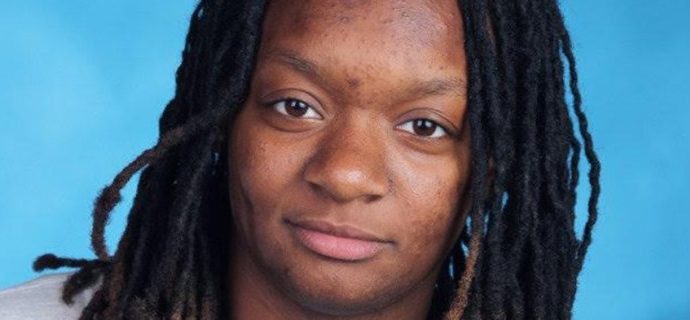I will stop at nothing to become an African American female computer scientist
ByJenari Mitchell (guest essay)
Read the full article at EducationPost.org >
Read all articles in the series >
The United States abolished slavery in 1865, but still today in the 21st century, my race suffers from profiling, police brutality and negative stereotypes. If I had a dollar for every time I was stopped by an officer for “fitting the profile,” my college books would be paid for.
I was actually on my way to a program for students interested in computer programming careers when two officers held me in the cold for nearly an hour, accusing me of tormenting a group of White women a few blocks away.
My hard work and dedication to prove myself worthy of receiving a college scholarship from that program was almost compromised because—before I could say a word—those officers had already labeled me a criminal.
The victims stated that “a group of children pretended to snatch their purses and shout sexual profanity.” However, they did not state that it was a group of White children. When the officers stopped the bus, they walked right past the White students and directly towards me.
The White students were believed innocent until proven guilty, while I, as a Black student, was found guilty until proven innocent. It had been instilled in our brains since early childhood that African-Americans have to work 10 times as hard for what they want, but what about African-American females?
When I began working at a summer camp at the age of 14, other females and I were automatically assigned to prepare lunch for the other campers and ensure that the camp stayed clean. Meanwhile, the boys organized physical activities and helped with math enrichment classes.
Instead of allowing myself to be subjected to domestic work solely because I am a female, I left the cafeteria and showed that I was more qualified to tutor math than most of the male counselors—by solving complicated math equations.
The director then switched my assignment to a teacher’s assistant. At that point, I realized I would be defined by society based on my skin and my gender until I proved otherwise. Thus, my real issue was not coping with how others defined me using negative stereotypes, but how I would overcome them and define myself.
I grew passionate about computer programming in the 10th grade after I learned to program websites and games in a web development class. I knew opportunities to expand my knowledge in programming would not just be thrown to an African-American female, so I built my own.
Instead of having the half-day schedule that all of my classmates were fighting for, I enrolled myself in pre-Advanced Placement computer science for my junior year and AP computer science for my senior year. Instead of having summer breaks, I completed two paid summer internships at Accenture that I had to compete for.
With the fighting spirit that I developed while being discriminated against, I sacrificed a lot to build my knowledge and experience in computer science during high school. Now I will stop at nothing to receive a college degree and then become an African-American female computer scientist.
